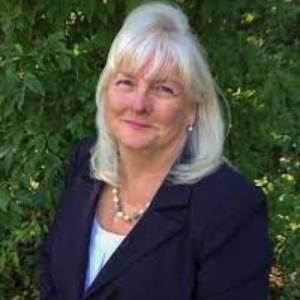Title : The status of simulation utilization in long-term care settings in the USA: Opportunities for nursing education
Abstract:
Long-term care settings in the United States are charged with the provision of quality care to those it serves. A means to enhance the existing delivery of care services rendered is to adopt educational strategies such as simulation that have been proven to improve outcomes. The purpose of this non-experimental, exploratory, descriptive correlational study design was to explore the current status of simulation utilization in long term care (LTC) settings to determine their organizations’ readiness to adopt this innovative technology.
Of the 52 respondents completing the survey, (73%) reported they did not use simulation. Of those who did, manikins were the predominant modality (57.14%). Other modalities used less frequently included task trainer, standardized/simulated patient, hybrid (each 35.71%), computer-based virtual reality (28.57%), and haptic (7.14%). The top three content areas included basic nursing skills (78.5%), followed by person-centered care and skin/wound management, while medication management, pain management, geriatric syndromes, and end of life care were the least reported simulation content areas.
The Simulation Culture Organizational Readiness Survey (SCORS) instrument with modifications was used to capture the key tenets of organizational readiness. The Total Overall SCORS-M Score mean of 87.49 (range of 42-178) indicated that LTC settings were “Somewhat” ready to adopt simulation. The Directors of Nursing Services (DONs) in LTC settings from the South perceive their organizations to be more ready to adopt simulation compared to the Northeast region. The South appeared to score higher in Section A. “Defined Need and Support for Change” than the Northeast and West regions. The Northeast appeared to score lower in Section B. “Readiness for Culture Change” than the West and Southern regions. Perceived access to Academic Healthcare Institutions for collaboration was reported as low, with 35% reporting “Not at All,” 35% reporting “A Little,” and only 9% reporting “Very Much.”
The findings of this study identified the current status of simulation utilization in LTC settings in the United States and quantify Directors of Nursing Services perceived overall readiness to adopt simulation. The results of this study highlight an opportunity for simulation collaboration and the building of partnerships with nursing academic institutions. A call for further research to examine the current state of simulation utilization on a broader scale is warranted.
Audience Take away Notes:
- describe the current state of simulation utilization in LTC settings in the United States.
- identify the extent a defined need to adopt simulation-based education exists in LTC settings
- recognize if readiness for a culture change in support of simulation-based education exists in LTC settings.
- identify how Directors of Nursing Services in LTC settings rate their organizations’ readiness for simulation-based education integration.
- identify opportunities for collaborative simulation-based education activities between LTC settings and academic nursing institutions.
A call for further research to examine the current state of simulation utilization on a broader scale to enhance outcomes and potentially improve the quality of care rendered to those residing in LTC settings in the United States is warranted.



